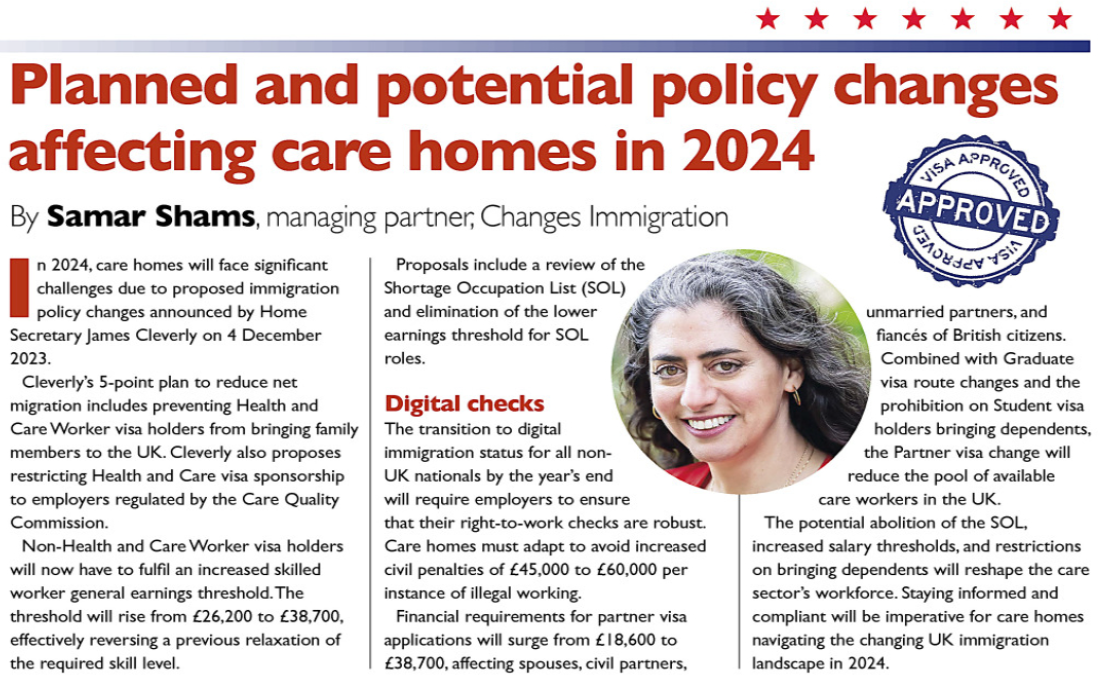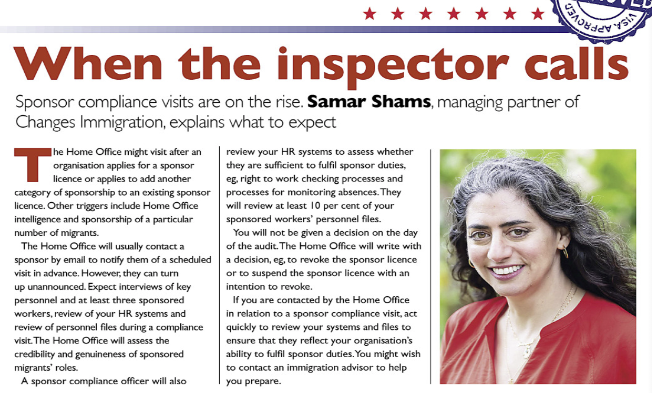The Graduate visa, also known as the post-study work visa, allows international students who have finished a UK-qualifying degree to apply in-country for permission to remain in the United Kingdom for two to three years.
The Graduate route is unsponsored; employers do not make any commitment through sponsorship or payment of visa fees. Applicants do not need a job offer to be eligible. Graduate visa holders are free to switch jobs and develop their careers.
In this article, we provide an overview of the Graduate visa, including eligibility requirements and benefits for both international students and employers. We also summarise the Migration Advisory Committee’s May 2024 rapid review of the Graduate visa route.
Who can apply?
Applicants must meet the following requirements:
- They must hold valid Student or Tier 4 Student status at the time of application. Applications can only be made from within the UK.
- They must have completed a UK bachelor’s degree, postgraduate degree, or other qualified programmes.
- They must have attended a Higher Education Provider with a track record of compliance as a student sponsor.
- They must not have previously held a Doctoral Extension Programme (DES) or Graduate permission.
- They must not fall for refusal on the grounds of suitability. For example, applicants must not have been convicted of an offence in the UK or overseas for which they have received a custodial or non-custodial sentence that is recorded on their criminal record.
An applicant’s spouse, civil partner or unmarried partner and children who joined the applicant on their Student visa or Tier 4 (General) Student visa can apply to stay in the UK as dependants on the graduate visa. The dependant’s immigration permission will expire on the same day as the applicant’s immigration permission.
How long can you stay?
A Graduate visa is valid for two years but can be extended to three years for those with a PhD or other doctoral degree.
Those who are not eligible to extend their Graduate visa may be able to switch to an alternative visa route.
Benefits for individuals
The Graduate visa affords international students the option to live in the UK after they graduate from their studies. The Home Office reported that 72,893 main applicants were granted Graduate permission in the year ending in December 2022, with a total of. These statistics demonstrate the popularity and effectiveness of the Graduate visa.
The Graduate visa facilitates International students’ exploration of various fields and sectors whilst gaining useful work experience. Over 60% of applicants granted Graduate visas have studied STEM subjects, i.e., science, technology, engineering, and mathematics.
Benefits for employers
Only 3% of companies surveyed by the Higher Education Policy Institute (HEPI) in October 2022 expressly opted to use the Graduate visa. More than a quarter (27%) claimed they were unaware of the process. These figures show how unpopular the route is with employers.
Employers should consider the Graduate visa. There are advantages to recruiting an international graduate who has obtained permission to remain in the UK on a Graduate visa.
Advantages include access to the international graduate labour market and the freedom to employ a graduate and integrate them into their organisation, whilst deciding whether to sponsor the graduate as a Skilled Worker in the longer term. Additionally, there are no constraints on the type of job or the wage level for workers on a Graduate visa. Employers can hire Graduate visa holders for entry-level or lower-skilled roles that are not eligible for work visa routes such as the Skilled Worker route.
The Migration Advisory Committee’s rapid review
One of the government’s objectives for the Graduate route prior to its introduction in 2021 was to ensure that UK Higher Education providers could attract talented students and enable employers to recruit skilled graduates. Has the Graduate route achieved its objectives, and will the government abolish it?
In its May 2024 rapid review of the Graduate route, the Migration Advisory Committee (MAC) reports that in 2023, 114,000 visas were granted to graduates, and 30,000 were granted to their dependants. 91% of migrants on the Graduate route had completed postgraduate taught courses. While the MAC cannot estimate an employment rate for those on the Graduate route, they have confirmed that the majority are in work and that the majority secure employment and work for most of their first year on the route.
Evidence of abuse?
The MAC found no evidence of significant abuse of the Graduate route. However, the MAC is concerned about the use of recruitment agents by universities in certain markets who provide misleading information about the route
Impact of the Graduate Route
The number of international students in the UK grew significantly when the Graduate route was introduced. However, the recent restrictions on student dependants, which came into effect in January 2024, appear to be reducing the number of international students. The changes in government policy will directly impact the number of international students who come to the UK. These will initially reduce immigration and mean that of those who do come to the UK to study, fewer will progress into work routes via the Graduate route and will instead likely return to their home countries. The MAC asserts that it is important that the government understand the impact of this before making further changes.
The MAC’s recommendations
Based on the MAC’s analysis, the Graduate route is achieving its objectives and supporting the International Education Strategy. Therefore, the MAC recommends that the government retain the Graduate route in its current form. Closure or additional restrictions to the route could put many universities at financial risk and disproportionately impact local and regional economies.
There is a lack of awareness of the Graduate route among employers, and this is a barrier to migrants seeking employment on the route.
The MAC recommends that Universities support the integration of international graduates into work and do more to raise awareness of the route among employers, as international graduates provide a potential pool of underutilised labour.
This is great news for UK employers to continue to attract and employ new talents without the restrictions of the new Skilled Worker visa salaries.
Contact Changes Immigration if you have any queries about this update.
Publication Date: 24 May 2024









